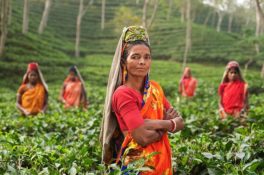Stakeholders were recommended the need to conduct research and documentation on traditional food and knowledge system, to promote indigenous seeds such as millets that are nutritious and suitable for all climates. They were also advised engagement with government stakeholders for collaborative work, promote cross learning and exchange programmes within partners and farming communities, and policy advocacy for sustainable food and farming system in mountain ecosystem.
At the one-day stakeholder meeting on ‘Sustainable Food and Farming Systems – Vulnerabilities and Strategies’, organised by North East Network and supported by Millet Network of India held on December 9 at St. Paul’s Institute, Phesama, Amba Jamir of SDFN while discussing on ‘The Way Forward’, noted that introduction of mono cropping can disrupt community cohesion and disappearance of crop variety which also means the disappearance of the knowledge system. He also stressed that sustainability of food production require the right value chain in value addition and marketing linkages.
Read original article at easternmirrornagaland.com
9 diciembre 2016Original Author: EMN

